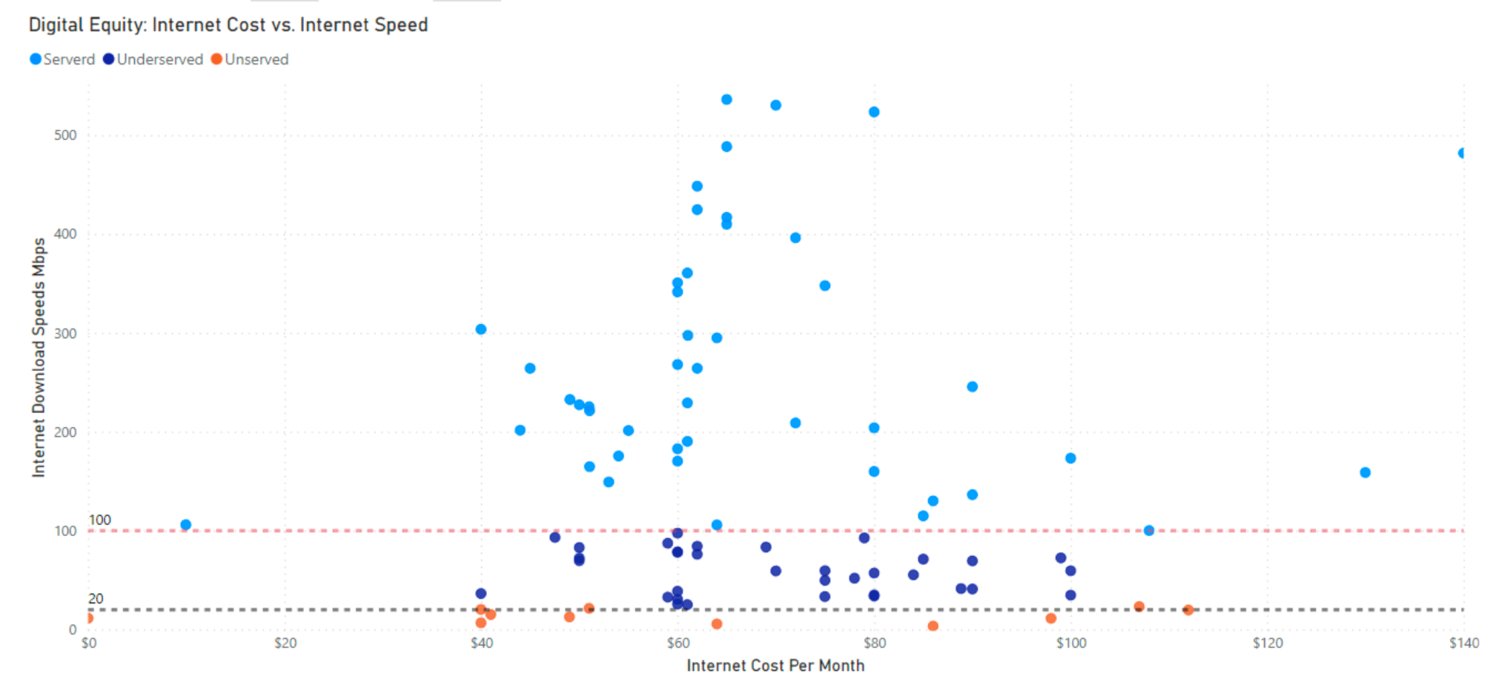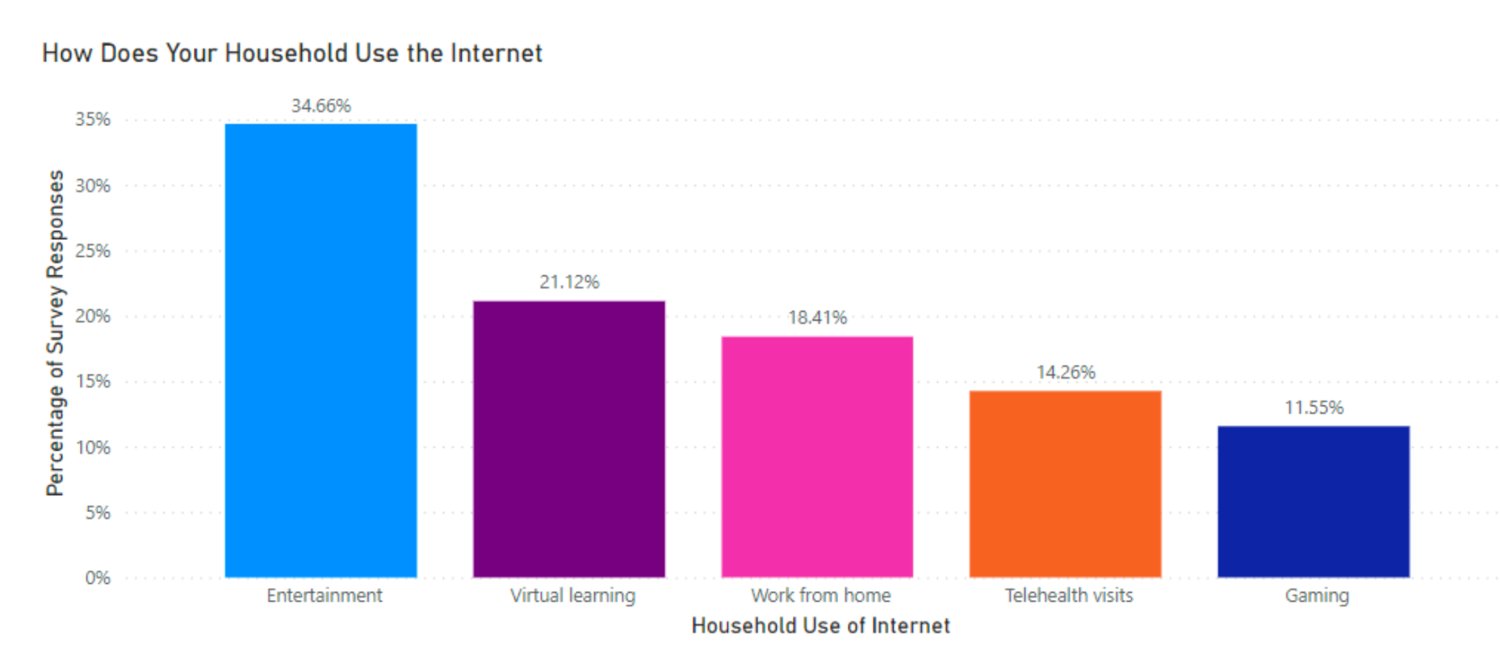Study finds only 1/3 of Warren residents properly served by broadband speeds
Nearly two-thirds of Warren residents surveyed do not have access to the quality of high-speed internet that is now considered the standard — and those more likely to rely on the internet for non-entertainment purposes are more likely to be subjected to subpar service and speeds.
This item is available in full to subscribers.
Please log in to continue |
Register to post eventsIf you'd like to post an event to our calendar, you can create a free account by clicking here. Note that free accounts do not have access to our subscriber-only content. |
Day pass subscribers
Are you a day pass subscriber who needs to log in? Click here to continue.
Study finds only 1/3 of Warren residents properly served by broadband speeds
The Town of Warren, working with HCH Enterprises, LLC of Warwick, has finished a preliminary study that investigated the availability, affordability, and quality of high-speed internet access in Warren.
The study, funded with a portion of the town’s allocation of ARPA money, was conducted between February and May of 2022 and was facilitated in part through a survey of about 430 respondents that was distributed along with an affordable housing survey by the Warren Health Equity Zone.
The big takeaway from the data collected? Nearly two-thirds of Warren residents surveyed do not have access to the quality of high-speed internet that is now considered the standard — and those more likely to rely on the internet for non-entertainment purposes are more likely to be subjected to subpar service and speeds.
What is the acceptable broadband standard?
The standard for so-called adequate high-speed internet service for some time has been set at 25 Mbps (megabits per second) for download speeds and 3 Mbps for upload speeds — the former of which means how quickly you can access information from the internet to a connected device (phone, computer, etc.), and the latter which means how quickly you can send information from your device to the internet.
Although the Federal Communications Commission (FCC) still uses that 25/3 standard to determine whether a household or community is “served” “underserved” or “unserved”, those standards were increased in the language of the federal Infrastructure Investment and Jobs Act, which set aside $65 billion in spending to address broadband quality and access. That legislation determined that 100 Mbps download and 20 Mbps download speeds were now the marker for broadband adequacy.
Using this standard, the survey found that only 36% of residents had broadband speeds exceeding 100/20, while 2% were considered “unserved” by not even managing to get the old standard of 25/3. The remainder were a mix of residents, some of who exceeded download or upload speed standards, but not both.
Affordability and inequity
An interesting takeaway from the study related to how much customers spend on internet access. According to the data collected, the average cost for an internet package in Warren was $74 a month, and the average cost for a cable/internet/phone bundle was $181 per month.
But part of the problem, as Town Planner Bob Rulli and Town Manager Kate Michaud pointed out to the Warren Town Council during their August meeting, was that the price you spend on internet access in Warren does not actually correspond with the quality of service you receive.
The survey found that some people could be paying as little as $40 a month to receive internet download speeds of 400 Mbps, while others paid as much as $110 a month to receive download speeds of just 20 Mbps.
This has to do, in part, with the type of broadband access a customer has access to. Internet service today is provided primarily through two physical means — copper cables, or fiber-optic cables. Fiber internet is technologically far ahead of copper, which has significant bandwidth and data transfer limitations.
“I think one of the issues is that residents don’t necessarily get the speed that they’re paying for, and there’s no way to know if they don’t do a speed test,” said Michaud. “Most people are on copper, and if you’re on copper you’re basically sharing bandwidth with your neighbors. So if everybody in your neighborhood is streaming at the same time and you’re on copper cable then everybody’s speeds are going to slow down.”
The study also found that residents who use the internet primarily for “economically impactful functions”, such as telehealth video calls, working from home, or virtual learning, experienced slower internet speeds and higher latency (a delay in processing data between a device and the internet).
“Different people are paying different prices for the same service,” Michaud said. “So one of our goals through creating this report and sharing it around is that there will be statewide price transparency and just through that price transparency, it might drive some competition to help drive some of those prices down.”
A need for regulation?
To Rulli, the broadband inequity issue is a serious one that is worthy of a concerted, statewide effort to address inequity among internet access for communities throughout the state — and the first step in his mind would be for the state to declare broadband as a necessary utility, on par with water or gas or electricity.
“Thirty-nine municipalities don’t want to be in the broadband business,” he said. “We want the state to take the lead on this.”
Adding to the problem is the fact that there are only two major internet service providers in Warren: Cox Communications and i3 Broadband, which supplied internet to 92 percent of residents surveyed. Due to their status as private companies, and broadband not being a public utility, as the system currently functions there is no real oversight as to where those companies must provide broadband access, how much it should cost, or even if there must be a logical correlation between pricing and the quality of access provided.
“We all have had this experience where you call Cox and say you want to cancel and they’ll make a deal with you,” Rulli said. “But not everyone is savvy enough to know that you can do that. That’s just not right.”
And although fiber internet is clearly the superior method of supplying consistent, fast internet service, there are likewise no requirements for fiber access to be made available, even in places where the infrastructure already clearly exists to do so.
“Unless it becomes a utility, there is no regulation,” Rulli continued. “We’re one of the only states in the country that doesn’t have this recognized as being a utility.”
State will have money to address issue
As part of the federal infrastructure bill, Rhode Island will be receiving north of $100 million to address issues relating to broadband access across the state. Town leaders hope that by leading a charge and conducting this type of report, they can set themselves up to be a good candidate for receiving some of that money to make improvements for residents.
“I don’t think any other community in the state has taken an in-depth look at broadband, so we’re using this to help the state and inform them as they move forward with how they’re going to spend this federal money,” Rulli said. “We’re hoping that other communities will take up this effort as well because, at the end of the day, we are underserved.
“Rhode Island, per capita, has more broadband infrastructure in place than any other state in the country, but our access to it in the East Bay is so…again, 63 percent of the households in Warren are underserved,” he continued. “So I’m hoping that our state delegation pays attention to that number. Because I suspect in other communities in the East Bay that is also true.”









